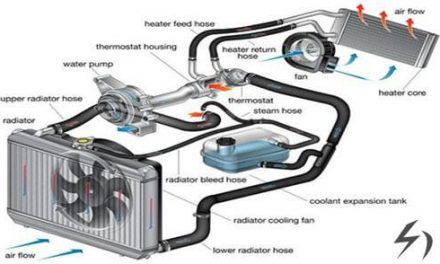A small business consultant is an individual who offers business owners advice and develops plans to help performance and efficiency. These consultants work for a company or themselves and often work under a contract to help struggling small businesses identify problems, implement solutions, boost revenue and profitability.
A small business consultant offers accounting, human resources, finance, manufacturing, fundraising, and insurance guidance, and can work for a variety of businesses, from manufacturing to retail. These consultants are experienced professionals who offer a wide breadth of knowledge to help small businesses become more successful. In this article, you will learn about the most common points about business consultants with Pritish Kumar Halder.

Small business consultant
Although many small business consultants have a bachelor’s or an advanced degree in business, marketing, finance, or a similar area, an advanced degree is not necessarily a requirement of the individual to have comparable skills, experience, and knowledge. These individuals are often required to obtain a consulting certificate or license and should possess strong organizational, analytical, financial, and interpersonal skills. A small business consultant can make up to $52,000 per year, and the job market is projected to grow 11% by 2028.
How to become a small business consultant
To become a small business consultant, you usually need a bachelor’s degree and 2-4 years of experience. The most common jobs before becoming a small business consultant are customer service representative, sales representative, and account executive. Hiring managers expect a small business consultant to have soft skills such as interpersonal skills, problem-solving skills, and time-management skills. Once you have all the required skills and experience, it takes an average of 3-6 months of job training to become a small business consultant.
The national average salary for small business consultants is $47,982, but with the right certifications and experience, they can make up to $66,000. Getting a certification as a Certified Professional – Human Resource (IPMA-CP) will help you to earn more as a small business consultant.
Step 1: Explore small business consultant education
 If you’re interested in becoming a small business consultant, one of the first things to consider is how much education you need. We’ve determined that 66.8% of small business consultants have a bachelor’s degree. In terms of higher education levels, we found that 11.8% of small business consultants have master’s degrees. Even though most small business consultants have a college degree, it’s possible to become one with only a high school degree or GED.
If you’re interested in becoming a small business consultant, one of the first things to consider is how much education you need. We’ve determined that 66.8% of small business consultants have a bachelor’s degree. In terms of higher education levels, we found that 11.8% of small business consultants have master’s degrees. Even though most small business consultants have a college degree, it’s possible to become one with only a high school degree or GED.
Choosing the right major is always an important step when researching how to become a small business consultant. When we researched the most common majors for a small business consultant, we found that they most commonly have business, accounting and marketing.
Step 2: Develop small business consultant skills
It’ll be a good idea to develop small business consultant skills before applying for a job. Here are some skills commonly requested in small business consultant job descriptions:
| Skils | Percentage |
| Customer Service | 57.19% |
| Business Clients | 10.90% |
| Outbound Calls | 5.85% |
| Strong Computer | 3.03% |
| Financial Statements | 2.87% |
| Business Development | 1.66% |
Step 3: Complete relevent training/internship
Small business consultants spend an average of 3-6 months on post-employment, on-the-job training. During this time, new small business consultants learn the skills and techniques required for their specific job and employer. The chart below shows how much time it takes to gain competency as a small business consultant based on U.S.  Bureau of Labor Statistics data and data from real small business consultant resumes.
Bureau of Labor Statistics data and data from real small business consultant resumes.
Step 4: Research small business consultant duties
When you decide to become a small business consultant, It’s important to know what duties and responsibilities are required for this position. Some common responsibilities are a part of most small business consultant jobs. Here is a list of the main duties that define the role:
- Manage client information using SalesForce CRM software.
- Construct and manage business Facebook page and keep current with appealing promotions and coupons.
- Manage training and presentation collateral on SharePoint system, resulting in recycling of documentation for consistent messaging across enterprise.
- Update and maintain various SalesForce and SharePoint accounts for clients.
- Display clothing and merchandise in windows, advertisements, and/or fashion shows.
- Decrease sales data – CRM integration/updating from hours to minutes for Siemens AG.
Step 5: Prepare your resume
Finally, when you already have checked the skills and responsibilities for this role, you can start creating your resume. Everything that goes into creating a perfect resume can take hours, days, or even weeks. No  worries, we created a resume builder to make this process as easy as possible with tips and examples of skills, responsibilities, and a summary.
worries, we created a resume builder to make this process as easy as possible with tips and examples of skills, responsibilities, and a summary.
Step 6: Apply for a small business consultant job
With your ready resume, it’s time to start searching for a new job. Consider the tips below for a successful job search:
- Browse job boards for relevant postings
- Consult your professional network
- Reach out to companies you’re interested in working for directly
- Watch out for job scams
Business Consultant responsibilities and duties
The responsibilities and duties section is the most important part of the job description. Here you should outline the functions this position will perform on a regular basis, how the job functions within the organization and the title of the manager the person will report to.
- Partner with executive management team to assess and improve current business processes
- Establish methods for testing business applications and create templates for reports used to monitor application effectiveness
- Monitor the communication between various departments to make sure that the customer service team is getting the information it needs to improve customer satisfaction
- Work closely with key customers to keep them updated on process changes designed to improve service
- Submit regular reports to management team about company health and new initiatives in progress
Business Consultant qualifications and skills
Next, outline the required and preferred skills for your position. This may include education, previous job experience, certifications and technical skills. You may also include soft skills and personality traits that you expect from a successful candidate. While it may be tempting to include a long list of skills and requirements, including too many could dissuade qualified candidates from applying. Keep your list of qualifications concise, but provide enough detail with relevant keywords and terms.
- MBA required
- 5+ years’ business consulting experience
- 10+ years’ experience in the manufacturing sector
- Must be willing to travel at least two weeks out of every month
- Strong problem solving skills
- Excellent written and verbal communication skills
Reference
https://www.zippia.com/small-business-consultant-jobs/how-to-become-a-small-business-consultant/
https://www.indeed.com/hire/job-description/business-consultant










